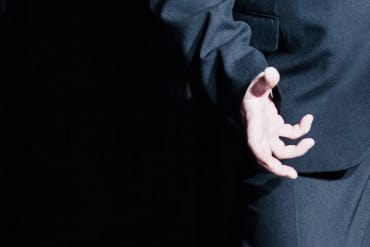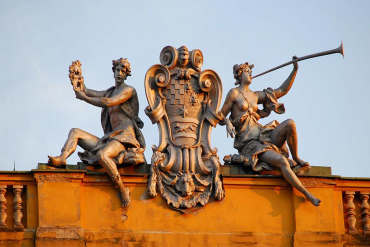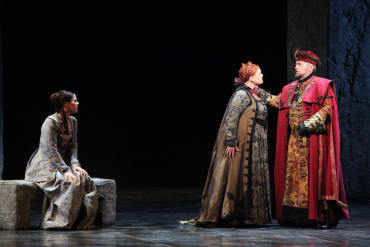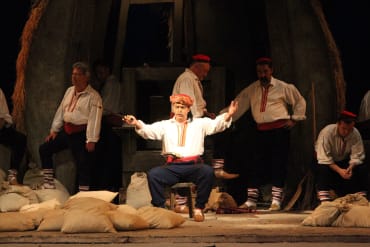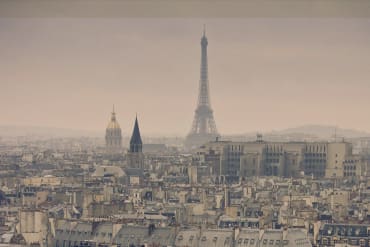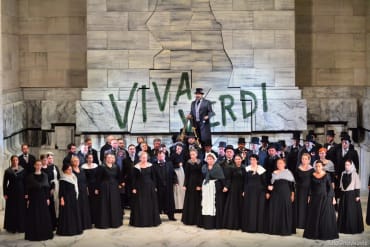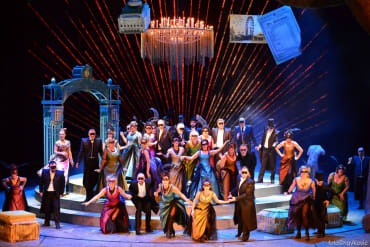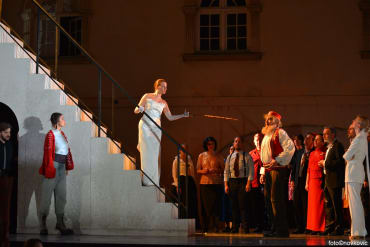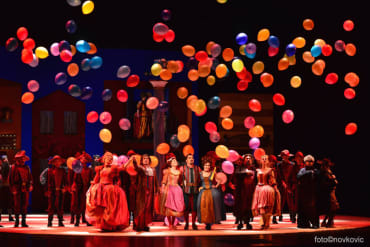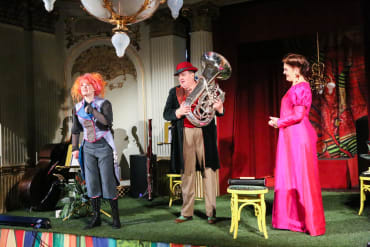The water nymph Rusalka more than anything in the world desires to become a human being in order to win the heart of the young prince. However, that wish has a price and this makes the little nymph wonder whether her dream is worth the greatest sacrifice? If Rusalka becomes a human being she will lose the power of speech and if the prince rejects her love, they will both be cursed.
Rusalka is the best known opera of the Chech romantic Antonín Dvořák composed to the fairy-like libretto of Jaroslav Kvapil. The legends of rusalkas, water sprites, harmful water nymphs from Slavic mythology have been described in the stories of Dvořák’s contemporaries, famous Chech writers such as Karel Jaromír Erben and Božena Němcová. The libretto was inspired by Hans Christian Andersen’s fairy-tale The Little Mermaid whose plot is mostly the same to the one in Dvořak’s opera, but also by the story Undine by the German poet Friedrich de la Motte Fouqué and the symbolic drama The Sunken Bell by Gerhart Hauptmann. The dreamlike atmosphere of this »sad, modern fairy-tale« to use the words of the librettist, inspired Dvořák to compose a poetic and sensual impressionist music score full of melodical imagination and excellent orchestration such as the suggestive expression of playing of the waves and the reflection of the moonlight on the surface of the lake. In Dvořák’s Rusalka, there are leitmotifs reflecting Wagnerism, but also the composer’s skilfulness in contrasting. Dvořák with entirely diverse expressive means depicts two opposing worlds, the fantastic and the human, and with unified melody lines achieves a miraculous contrast between the ethereal Rusalka and the passionate princess. In that manner Dvořák underlines the thesis from Kvapil’s libretto about the impossibility of joining two worlds and the destiny of an individual who, by exiting his world, is being thrown out of both.
Rusalka will be staged exactly 99 years after the last Zagreb premiere because it permanently disappeared from the repertoire of the Zagreb Opera after WWII. The stage director of Dvořák’s opera-fairytale will be the Italian opera director Caterina Panti Liberovici and the conductor will once again be Srba Dinić.

















